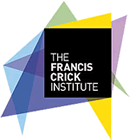About the Project
This 4-year PhD studentship is offered in Dr Frank Uhlmann’s Group based at the Francis Crick Institute (the Crick).
The cell division cycle consists of a series of temporally ordered events. Genetic material and cellular content are duplicated before cells divide in two. To prevent genome damage of the sort often observed in tumours, temporal order is crucial for successful completion of the cycle. E.g. DNA replication must be complete before chromosome segregation. In turn, chromosome segregation must be complete before conclusion of cell division by cytokinesis. Cell cycle kinases and counteracting phosphatases provide key regulatory input into cell cycle progression. How phosphorylation of the correct substrate happens at the correct time is poorly understood. E.g. the cyclin-dependent kinase (Cdk) is responsible for phosphorylating substrates that both initiate DNA replication, as well as trigger chromosome segregation. How both sets of substrates are phosphorylated at their distinct times is an important open question. This project will address this question using the budding yeast S. cerevisiae as a model organism, making use of a range of techniques including biochemistry, molecular genetics and cell biology. The insight gained on regulation of timely cell cycle phosphorylation are likely to apply to the temporal regulation of many cellular signalling pathways.
Talented and motivated students passionate about doing research are invited to apply for this PhD position. The successful applicant will join the Crick PhD Programme in September 2019 and will register for their PhD at one of the Crick partner universities (Imperial College London, King’s College London or UCL).
Applicants should hold or expect to gain a first/upper second-class honours degree or equivalent in a relevant subject and have appropriate research experience as part of, or outside of, a university degree course and/or a Masters degree in a relevant subject.
APPLICATIONS MUST BE MADE ONLINE VIA OUR WEBSITE (ACCESSIBLE VIA THE ‘APPLY NOW’ LINK ABOVE) BY 12:00 (NOON) MARCH 19 2019. APPLICATIONS WILL NOT BE ACCEPTED IN ANY OTHER FORMAT.
References
1. Bouchoux, C. and Uhlmann, F. (2011)
A quantitative model for ordered Cdk substrate dephosphorylation during mitotic exit.
Cell 147: 803-814. PubMed abstract
2. Uhlmann, F., Bouchoux, C. and Lopez-Aviles, S. (2011)
A quantitative model for cyclin-dependent kinase control of the cell cycle: revisited.
Philosophical Transactions of the Royal Society of London. Series B, Biological Sciences 366: 3572-3583. PubMed abstract
3. Kuilman, T., Maiolica, A., Godfrey, M., Scheidel, N., Aebersold, R. and Uhlmann, F. (2015)
Identification of Cdk targets that control cytokinesis.
EMBO Journal 34: 81-96. PubMed abstract
4. Godfrey, M., Touati, S. A., Kataria, M., Jones, A., Snijders, A. P. and Uhlmann, F. (2017)
PP2ACdc55 phosphatase imposes ordered cell-cycle phosphorylation by opposing threonine phosphorylation.
Molecular Cell 65: 393-402 e393. PubMed abstract
5. Touati, S. A., Kataria, M., Jones, A. W., Snijders, A. P. and Uhlmann, F. (2018)
Phosphoproteome dynamics during mitotic exit in budding yeast.
EMBO Journal 37: e98745. PubMed abstract

 Continue with Facebook
Continue with Facebook

